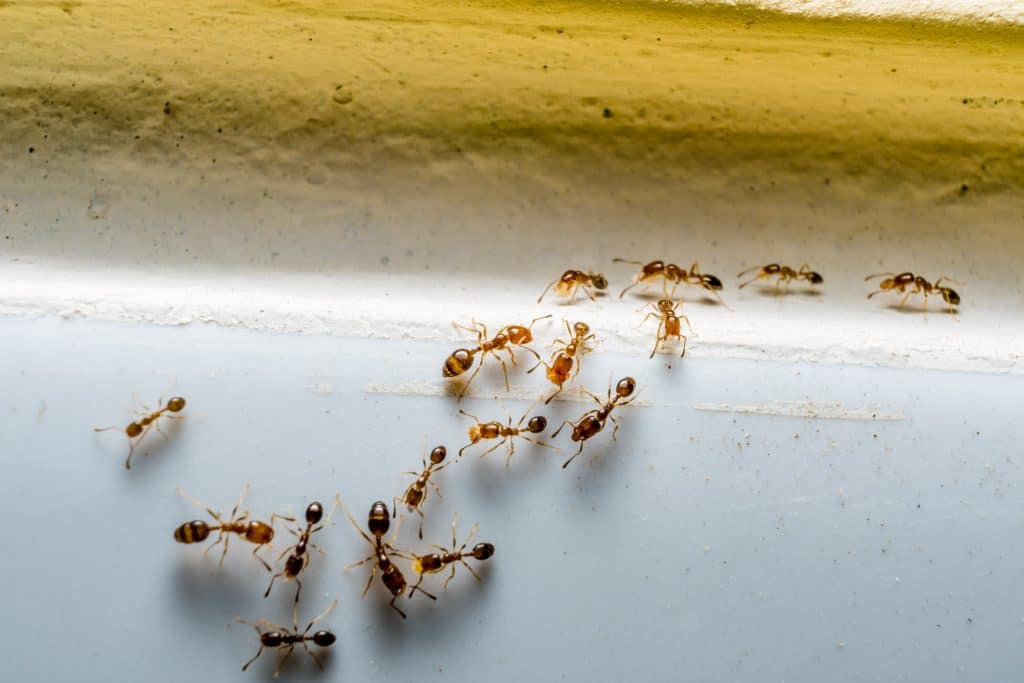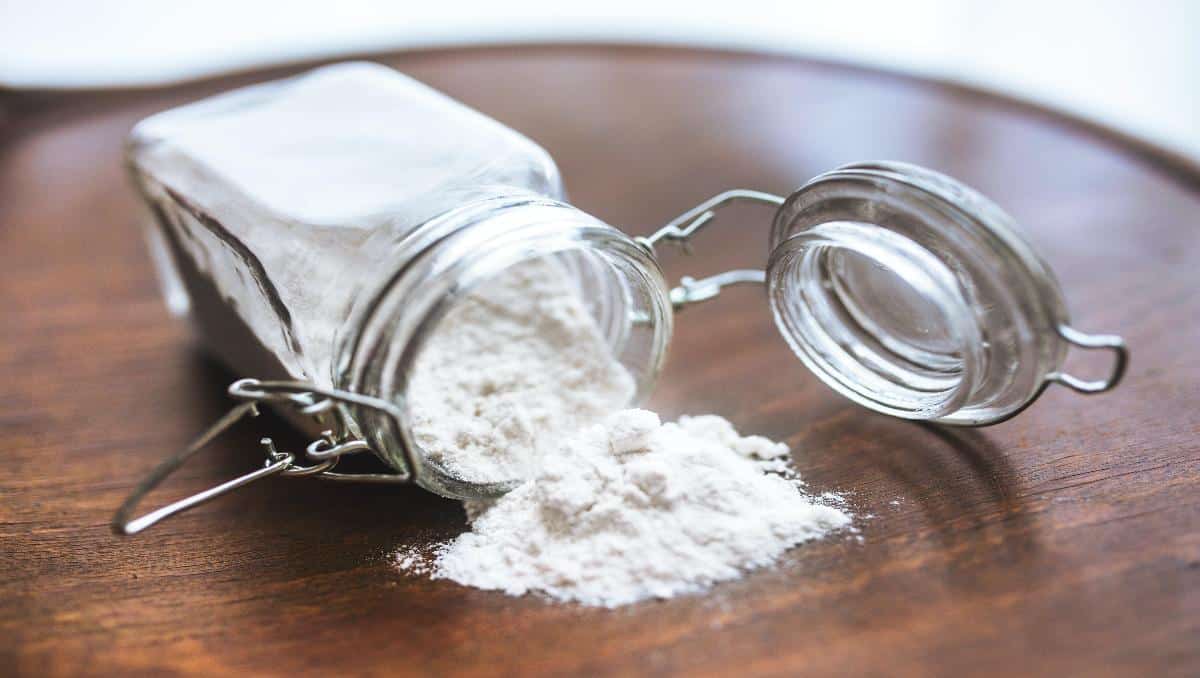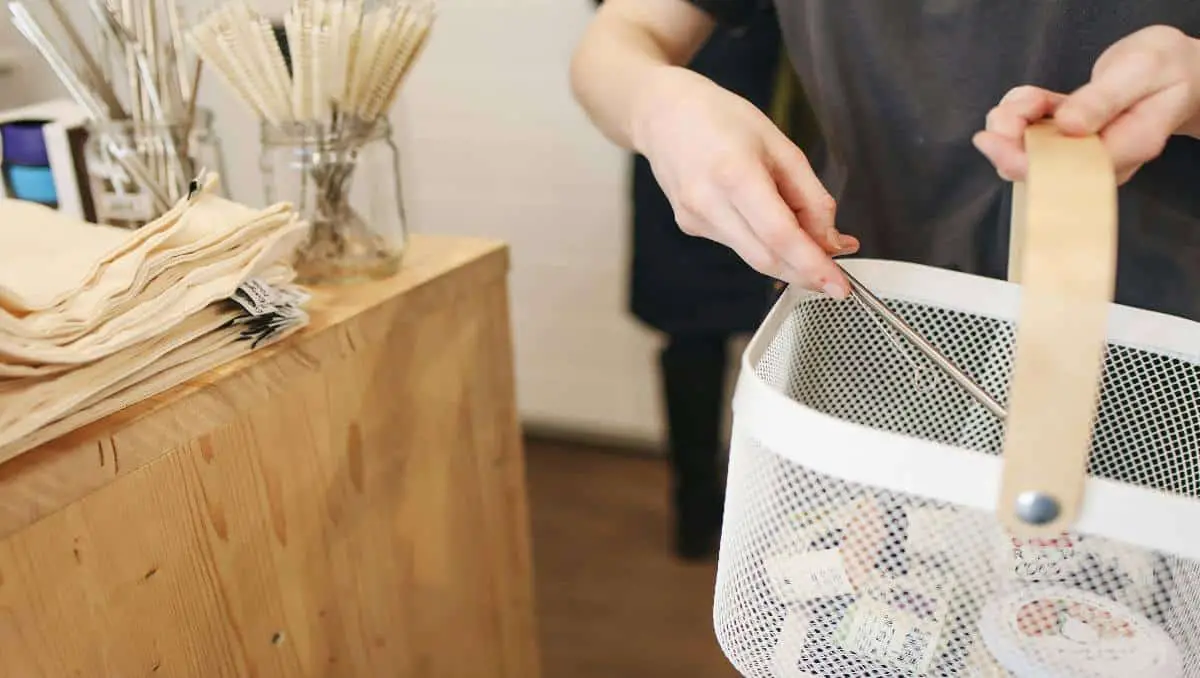Nothing beats strolling into your kitchen first thing in the morning, bleary-eyed and eager for a cup of coffee, only to discover that ants have infested your house.
Ants are a major annoyance in the home. And the most awful part? Professional ant eradication is costly. Plus, it may also require the use of harmful chemicals.
Instead of spending your hard-earned money trying to get rid of ants at home and risk your health in the process, try some of the most effective ant killer recipes below.
Natural Ways To Kill Ants
Here are the best homemade ant killer recipes you can make at home.
1. White Vinegar
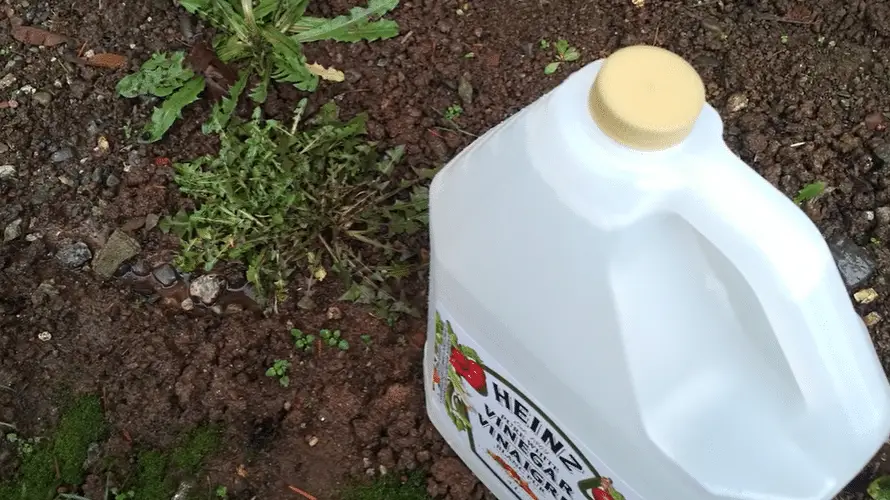
White vinegar, widely accessible in supermarkets, is a low-cost and efficient approach to get rid of ants. It also acts as a natural cleaner.
Ant Killer Recipe:
- 1 cup of water
- 1 cup vinegar
In a spray bottle, combine equal parts vinegar and water in a solution. Spray ants directly, wipe them up and throw them away. Spray water and vinegar around your window sills, doors, and other areas where you observe ants coming inside as a deterrent.
You can also clean hard surfaces, such as floors and worktops, using a 1-to-1 vinegar/water combination anywhere ants are prone to go. After the vinegar dries, ants can smell it, but most humans cannot smell it for long.
Spray around your house for ant-controlling success; the unpleasant liquid masks ant smell traces, making it difficult for them to track. Pour a little vinegar into the bucket the next time you clean the floor.
2. Peppermint
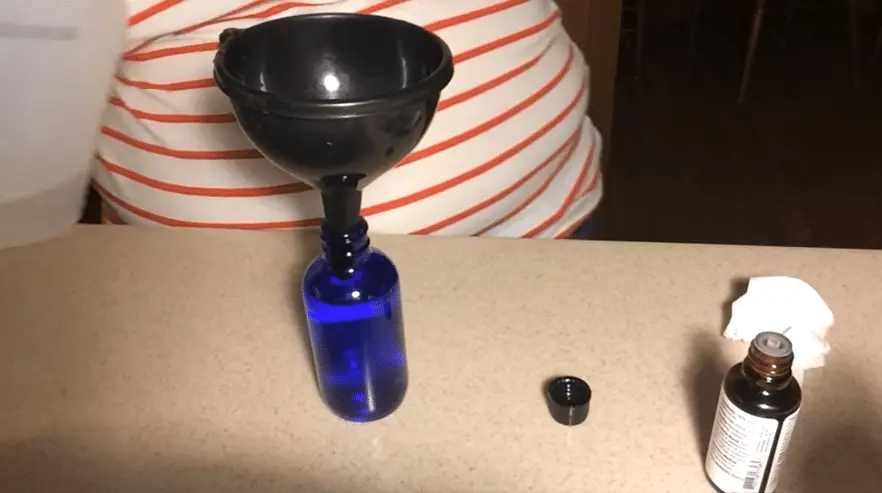
To get rid of insects, plant mint around the perimeter of your property. Peppermint or peppermint essential oil is a natural repellent that may help repel fire ants and insects like mosquitoes. Ants despise the peppermint odor, so growing it in vegetable patches and flower beds repels them while providing a minty fresh perfume to your garden!
Ant Killer Recipe:
- 10 to 20 drops of peppermint essential oil
- 2 cups of water
In a clean plastic spray bottle, combine 10 to 20 drops of peppermint oil with 2 cups of water. Spray the mixture around your home’s baseboards and windows. Allow the mixture to dry before repeating. Use a cotton ball with a few peppermint oil drops to wipe suspicious spots and where ants assemble.
Like other essential oils, peppermint oil should be kept out of reach of pets, particularly cats, who may get quite sick if exposed. Peppermint, wintergreen, geranium, thyme, clove, and rosemary essential oils are also effective.
3. Cinnamon
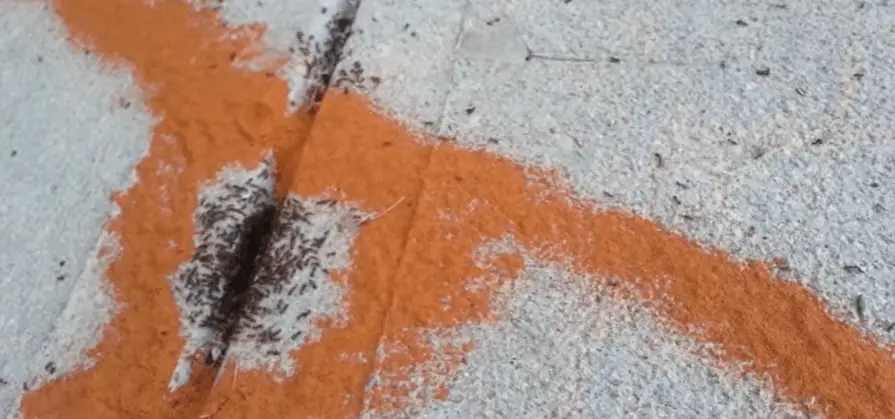
Cinnamon is an excellent ant-killing agent. Cinnamon is natural and non-toxic, and it kills ants and acts as a repellent due to its powerful scent. An ant suffocates and dies after inhaling cinnamon. Compounds in the cinnamon leaf essential oil, such as trans-cinnamaldehyde, were shown to be efficient in killing and repelling ants, especially biting red ants, according to a 2005 research.
Ant Killer Recipe:
- Ground cinnamon
- or undiluted cinnamon leaf essential oil and water
You may sprinkle ground cinnamon on the ants’ route or around the entry points of an anthill. You can also spray on the ant trails around doors, windows, and gaps with a mixture of cinnamon oil and water.
For pure cinnamon leaf essential oil, saturate them in cotton balls and place them in parts of the house where you often see ants. Weekly, replace the cotton balls with new, soaked cotton balls. Cinnamon leaf essential oil is widely available at health food shops.
4. Lemon Juice
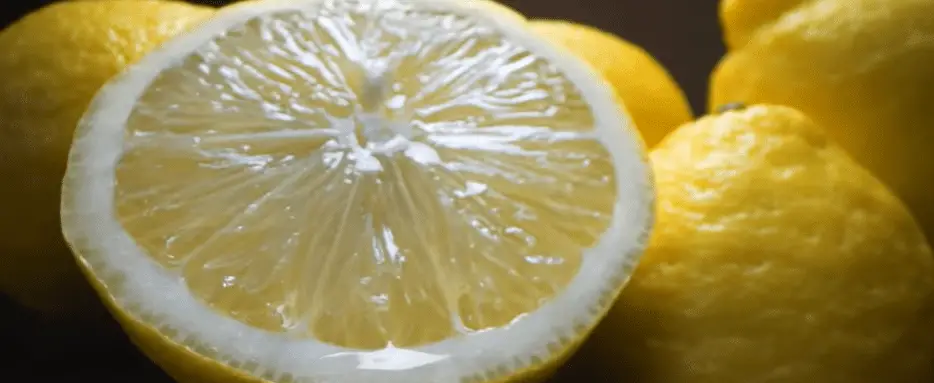
Lemon juice, like vinegar, seems to damage the smell trails that ants follow. You may use lemon juice to kill ants by eliminating pheromone trails and concealing the smell of food.
Ant Killer Recipe:
- 1 part of lemon
- 3 cups of water
Make a homemade ant spray by combining one part of lemon juice with three cups of water. Spray the lemon solution around your home’s entry points and perimeter and any spots where ants are visible.
Furthermore, placing lemon rinds in your cabinet may deter ants from settling in your kitchen.
5. Black Pepper or Cayenne Pepper
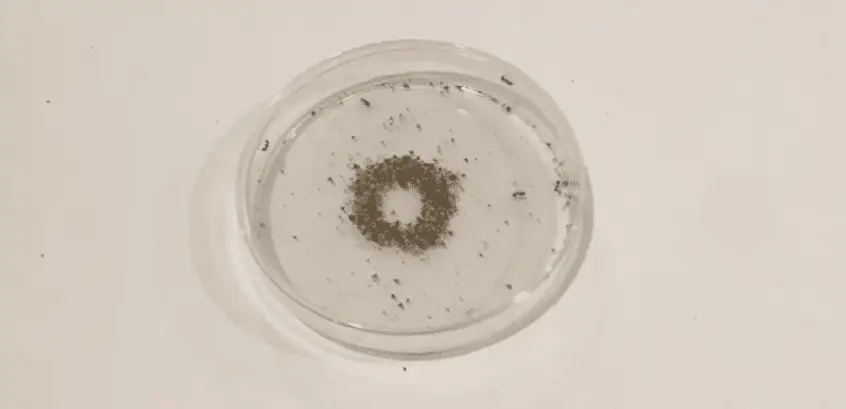
The smell of cayenne pepper deters ants. Black pepper will do the job just as well. Ants dislike black or red (cayenne) pepper fragrance; thus, it is a natural deterrent.
Ant Killer Recipe:
- Black pepper or cayenne pepper sprinkle
- Pepper and water mixture
Locate the source of the ant infestation. Put some pepper around and build a barrier to keep ants out. Mix some pepper with water and spray the resultant fluid at the ants as an alternative. The pepper won’t kill the ants, but it will keep them away. Also, sprinkle pepper along baseboards and behind appliances.
Although pepper does not kill ants, the pungent odor will deter them. Alternatively, make a spray bottle with pepper and water and sprinkle your home’s access points.
6. Food-Grade Diatomaceous Earth
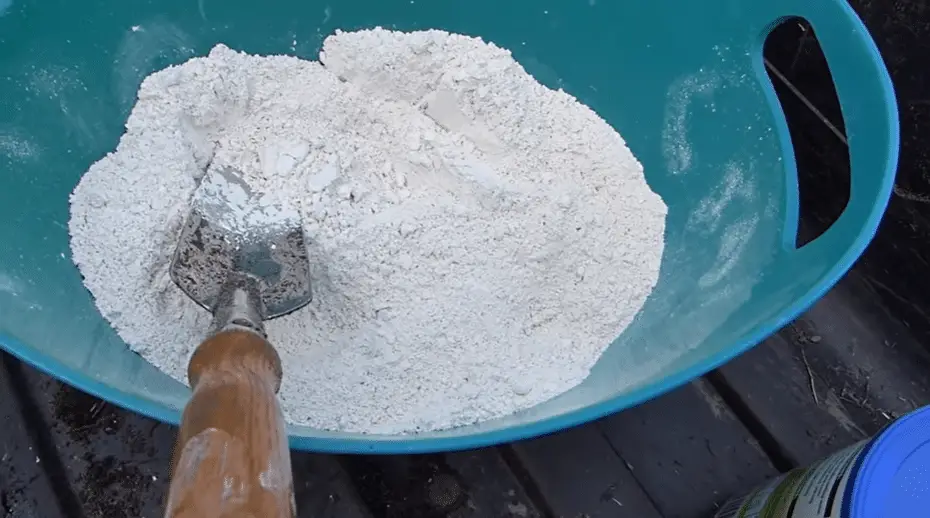
An ant repellent made from food-grade diatomaceous earth (DE) is very effective. DE’s tiny, razor-sharp edges may sever the ants’ exoskeletons, causing their bodies to dry out over time. Diatomaceous earth is sand created from diatom shells that have been petrified (a type of small sea animal). Diatomaceous earth comes in two varieties. One is food-grade, while the other is for pool cleaning and includes potentially dangerous pesticides for your dogs.
Ant Killer Recipe:
- Food-grade diatomaceous earth
- FD with water or vinegar
Sprinkle food-grade diatomaceous earth around ant-infested regions. It kills ants by absorbing and dehydrating the oil on their bodies’ outer coating. Apply a thin coating of DE to windowsills, behind the refrigerator, under cabinets, in and around trash cans, and any other areas where ants are visible. Rep once a day until all the ants vanish.
Caution: Since diatomaceous earth is an irritant, avoid inhaling it or putting it on your skin. Food-grade diatomaceous earth is available for purchase online.
7. Dish soap and Water Mixture
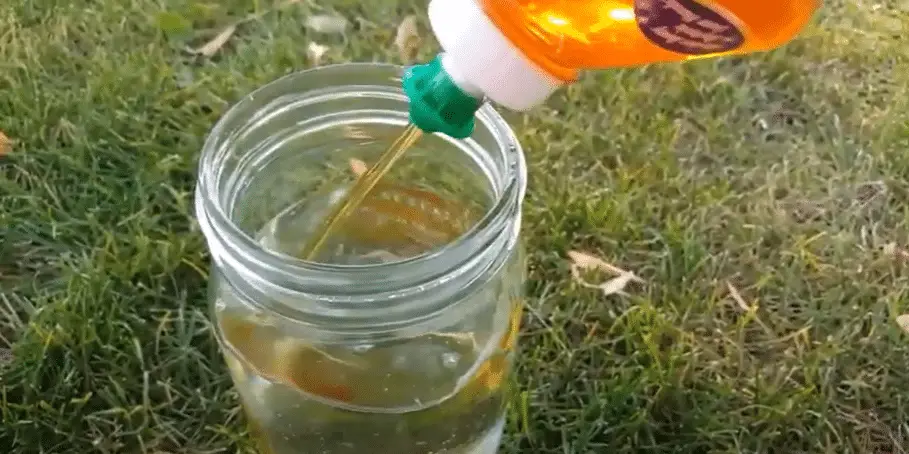
Spraying soapy water at access points where ants enter your property will stop ants from entering. It removes the chemical trail that ants leave behind. Ants use pheromones to communicate with one another, and the lack of pheromones makes it harder for them to enter dwellings.
Ant Killer Recipe:
- Dish soap
- water
Make a dish soap or dishwashing liquid combination, pour it into a spray container, shake it vigorously, and spray to ants. You may also use this spray to get rid of ants that have taken up residence on your plants. The treatment will kill the ants, but it will not harm your plants.
8. Sugar and Borax Paste
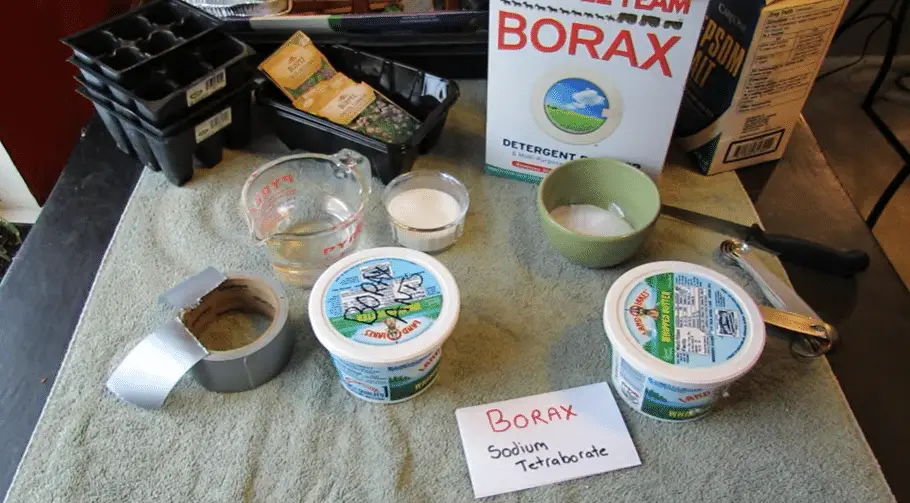
Despite their similar-sounding names, borax and boric acid are not the same chemical substance. Borax kill ants because it disrupts their digestive tract.
Ant Killer Recipe:
- ½ teaspoon borax
- Eight tablespoons sugar
- 1 cup of warm water
To make a diy borax ant killer, put on your protective gloves and mix borax, sugar, and water to make a solution. Stir in the sugar and borax until they are completely dissolved. Soak cotton balls in water and put them about your house in locations where ants are common. Workers that have been enticed return to the nest with the tasty substance to share with their comrades. Containers should be washed thoroughly after use or discarded.
You can find borax at your local hardware and gardening shop and online. Although borax is low in toxicity for humans, we advise keeping borax-laced bait out of the reach of children and pets.
9. Liquid Detergent and Glass Cleaner
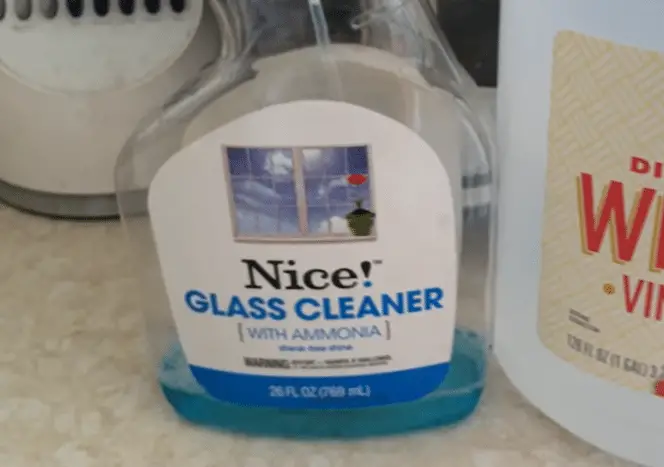
When ants wander, they leave a fragrant pheromone trail that works as a map. You can kill ants’ pheromone trail using liquid detergent and glass cleaner.
Ant Killer Recipe:
- Liquid detergent
- Glass cleaner or soapy water (hand soap, dish soap)
Combine glass cleaning spray with liquid detergent (dish soap) in a clean spray container. Spray the solution in locations where ants seem to enter or gather. Wipe clean the area after spraying, leaving a faint residue. Repeat the steps as required.
If you don’t have any glass cleaner, hand soap or dish detergent will likely erase the fragrance of the ant pheromones.
You might also be interested in exploring the fascinating realm of increasing female pheromones for humans.
10. Tea Tree Essential Oil
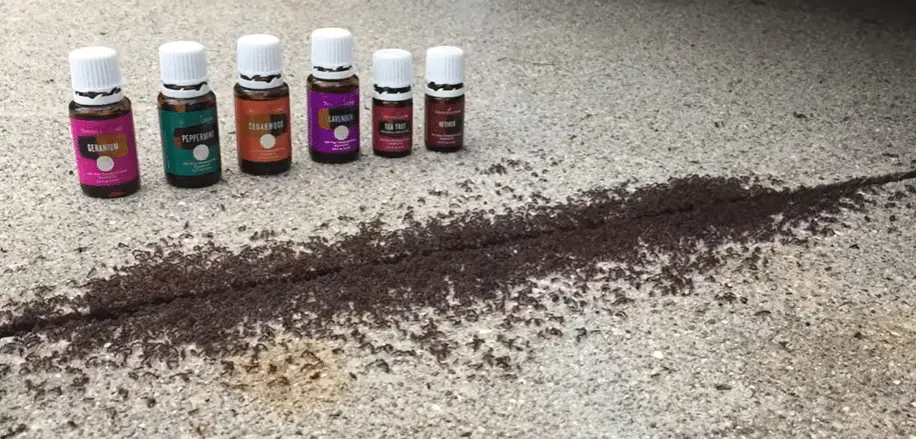
When ants wander, they leave a fragrant pheromone trail that works as a map. You Like peppermint essential oil, tea tree oil is an efficient ant repellent.
Ant Killer Recipe:
- Liquid detergent
- Glass cleaner or soapy water (hand soap, dish soap)
In a clean plastic spray container, combine 5 to 10 drops of tea tree oil with 2 cups of water. Spray the mixture in areas of the home where ants are common. Alternatively, soak cotton balls in the mixture and scatter them over your house. If the aroma is too overpowering, try combining tea tree oil, peppermint oil, and water.
Like other essential oils, you should keep tea tree oil out of reach of dogs and children.
11. Eucalyptus Lemon Oil
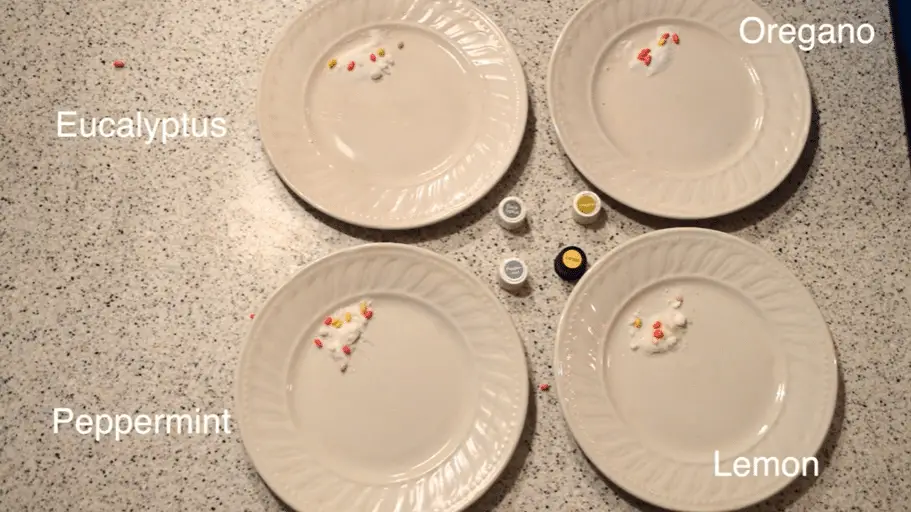
Another natural bug repellant is oil produced from the lemon eucalyptus tree. It includes citronella, which is effective in repelling mosquitoes and other insects.
Ant Killer Recipe:
- Undiluted lemon eucalyptus oil
Using undiluted lemon eucalyptus essential oil, saturate cotton balls. Place the cotton balls in parts of the house where you often observe ants. Weekly, replace the cotton balls with new, soaked cotton balls.
You should keep lemon eucalyptus oil out of the reach of children and pets.
12. Boiling Water
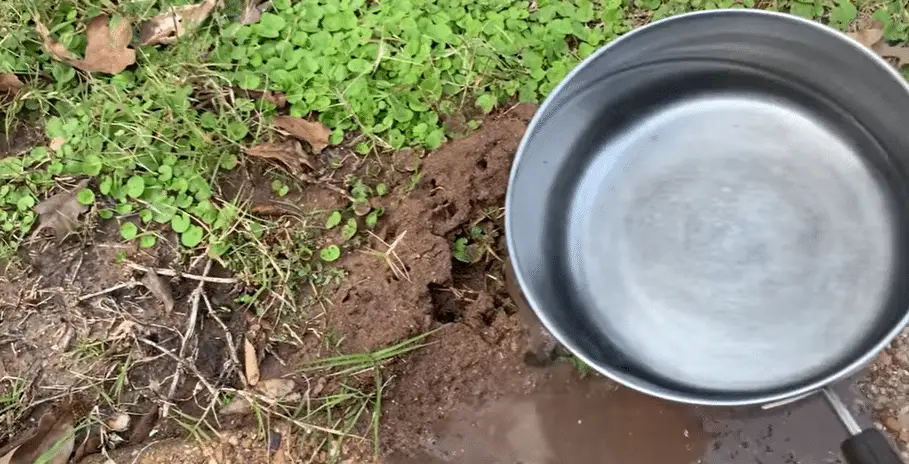
Pour hot water into any ant holes you see around your property. Many of the ants will die quickly and successfully using this procedure. Ant hills may look tiny, yet underneath them lie massive ant colonies.
The boiling water alone will not be sufficient to wipe out the entire ant colony. As a result, be careful to treat any ant holes near your property.
13. Cornstarch
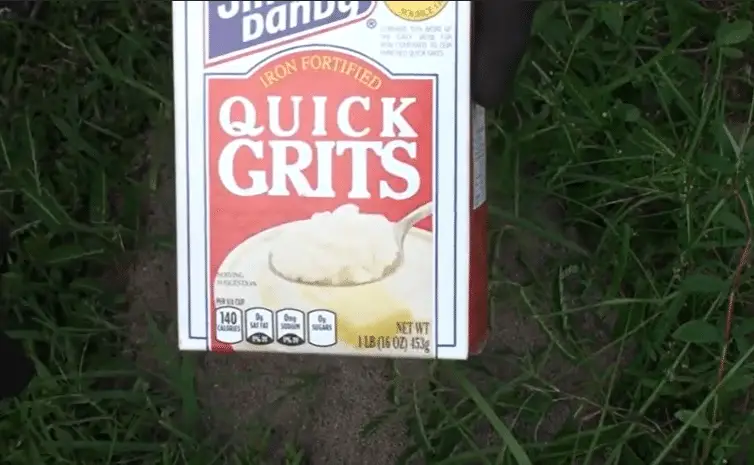
Cornstarch, which is readily accessible at food shops, may be used to smother a large number of ants at once.
Ant Killer Recipe:
- Cornstarch
- water
You may use cornstarch to get rid of ants in two separate ways. The first approach involves generously applying cornstarch to the entire colony of ants and then sprinkling water on top. Cornstarch will coat many dead ants, which you may then clean up. The second way is to dust the ants with cornstarch and vacuum them up, being sure to dispose of the vacuum bag outside as soon as possible.
14. Neem Oil
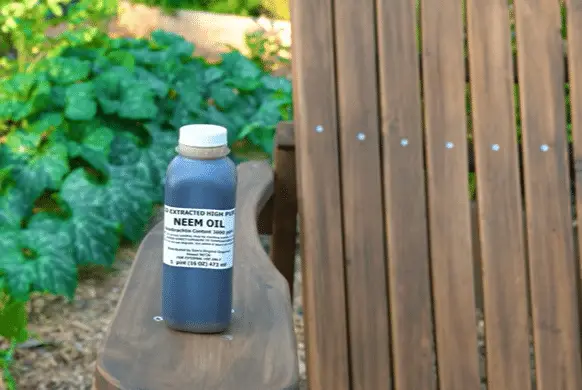
Neem oil is a pesticide derived from the neem tree, native to India. Gardeners advise applying neem oil around plants, mainly if aphids or ants are present. Ants raise aphids (tiny sap-sucking insects); therefore, killing the aphids with neem oil will eliminate both kinds of pests. Diluted neem and neem extract don’t work as effectively as full-strength neem oil.
15. Ground Coffee
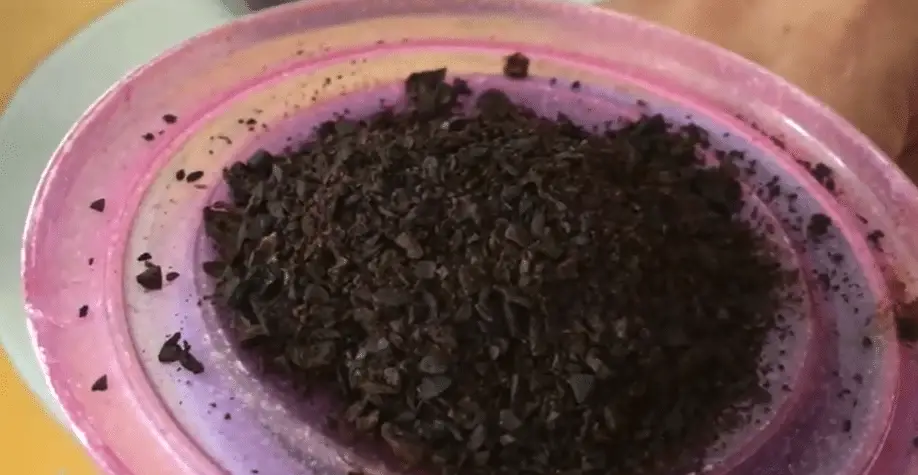
Ants are known to be attracted to brewed coffee grounds. Sprinkle coffee grounds on disposable surfaces (such as index cards) and place them in ant-infested places like pet bowls or window sills. If the grounds get dry, they may lose their efficacy, so replace them often.
This tried-and-true ant-repelling method has been around for a long time. Sprinkle coffee grinds around the stems of indoor and outdoor plants and flowers.
16. Boric acid
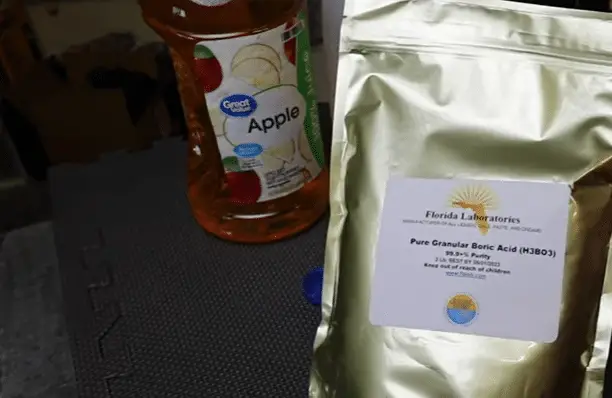
Ants are known to be attracted to brewed coffee grounds. Sprinkle coffee grounds on According to an earlier 2003 animal research, a boric acid is a form of toxin that may kill some types of worker ants and their queen after three weeks of exposure. It does this by eroding the exterior shells and stomachs of the ants.
Ant Killer Recipe:
- ½ teaspoon boric acid
- Eight tablespoons of powdered sugar
- 1 cup of warm water
Put on your protective gloves. Combine 1/2 teaspoon boric acid, eight tablespoons of powdered sugar, and 1 cup of warm water to make a solution. Stir in the sugar and boric acid until they dissolve. Soak cotton balls in water and put them about your house in locations where ants are common. Containers should be washed thoroughly after use or discarded.
Note: You can use boric acid to make DIY ant traps by combining the powder with a sweetener like corn syrup. It is critical to keep boric acid out of the reach of dogs and children since it is unsafe.
If DIYs Don’t Work
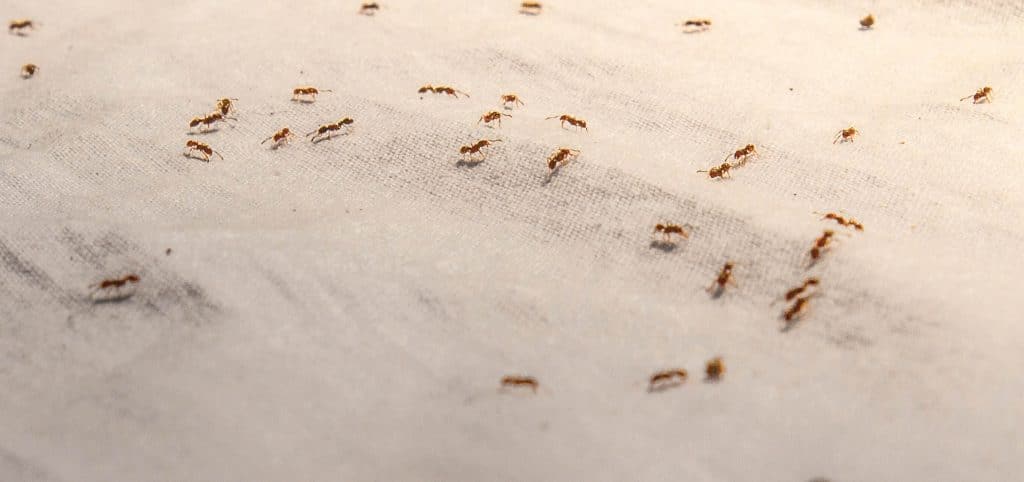
If DIY ant killer doesn’t work, you may purchase an ant spray from a grocery shop or other retailer. Use one that is ant-specific. Follow the directions on the label to ensure safety. Some ant sprays kill ants right away, while others kill them over time, allowing them to reach the nest before dying.
If natural remedies aren’t adequate, you may use insecticides and professionally manufactured treatments to get rid of ants. Non-toxic ant killer sprays are also available over the counter.
Bait traps with pesticides in an enclosed form may be preferable to sprays for certain persons. Bait traps function by luring ants in with food. The ants consume the bait and return part of it to their nests, where it kills other ants.
Others include hydramethylnon, a toxic chemical molecule harmful to children, pets, and food crops like tomato plants.
If everything else fails, a professional exterminator may be able to assist. Look for a company dedicated to using the least amount of harmful chemicals. Tell them if you have children, pets, or other health issues, such as a respiratory illness.
Any precautions?
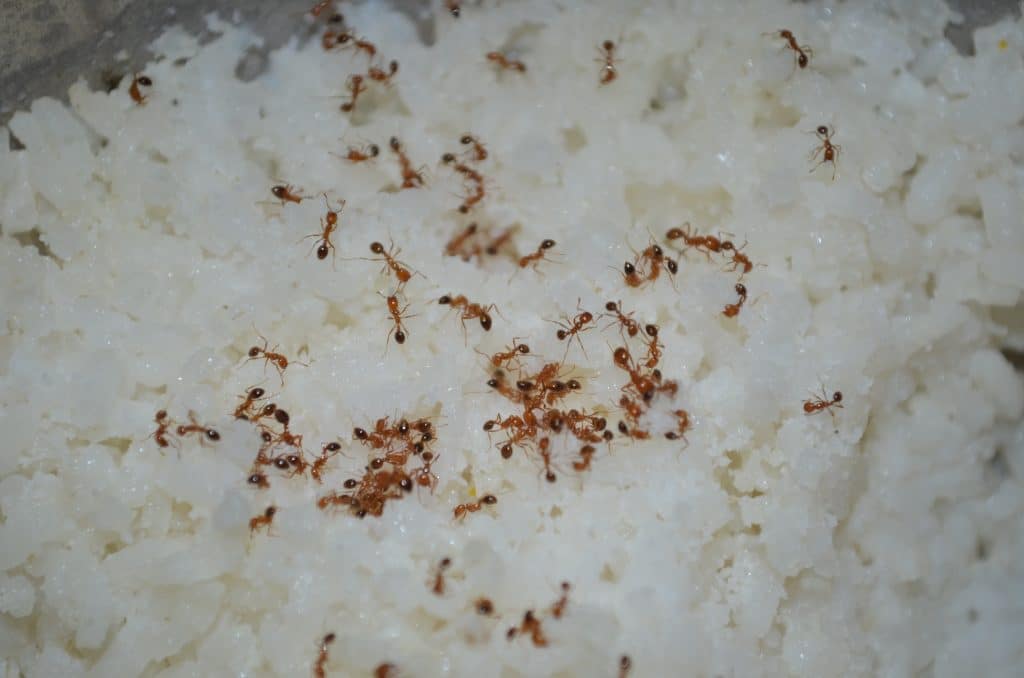
There are a few more things you may do to keep ants at bay:
- Clean up crumbs from your house every day.
- Take out the garbage regularly. New ants are attracted to thrown food.
- Maintain a clean sink at all times.
- Keep your home free of excessive dampness. Insects thrive in humid settings.
- Examine your home for access spots and apply repellants to seal them off.
- Clear your walls of vines, bushes, and other vegetation. Ants may use this as a ladder to access the home’s inside.
Ant problem is a pain to deal with. However, you can keep them out of your house with the appropriate strategies. Try these strategies to see which one works best for you. And you may finally live without fear of being stung or bitten!

